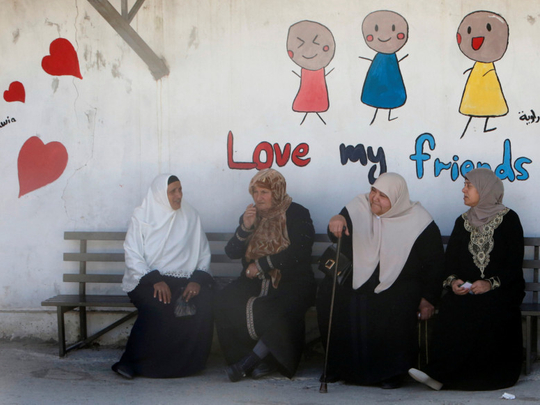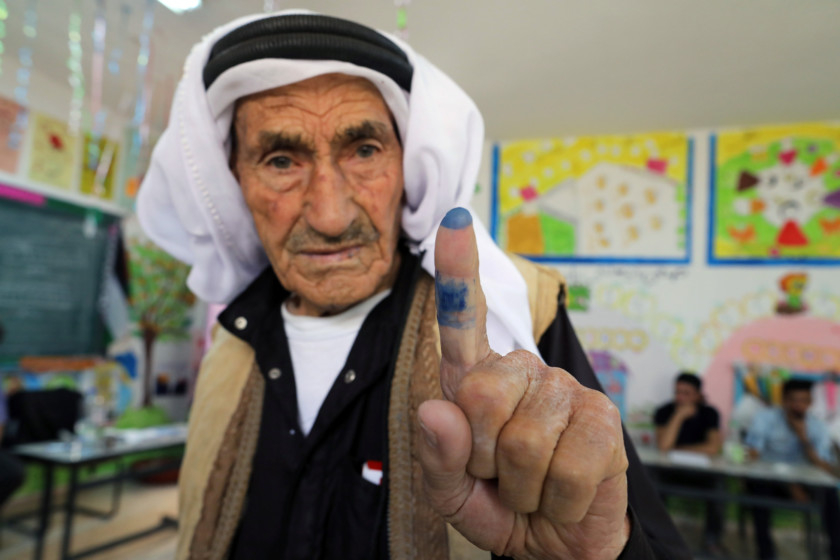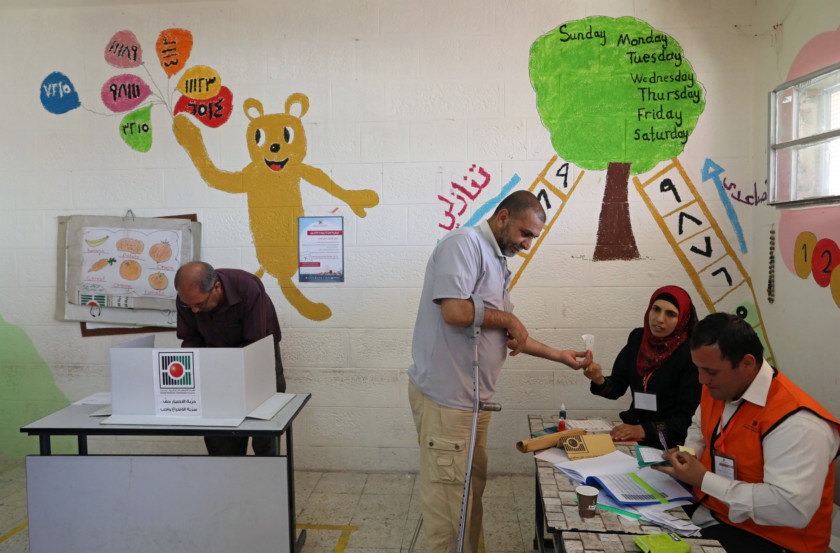
Ramallah: Palestinians in the occupied West Bank voted on Saturday in municipal elections that underscored deep rifts between president Mahmoud Abbas’s Fatah party and Islamist rival Hamas which runs the Gaza Strip. The West Bank and Gaza have not participated in an election together since 2006, when Hamas swept Palestinian parliamentary polls, sparking a conflict that led to near civil war in Gaza the following year.
The international community refused to deal with any government in which Hamas participated until it renounced violence and recognised Israel and past peace agreements.
Escalating tensions between Hamas and the more moderate Fatah led to Hamas’s seizure of Gaza in 2007, while Abbas’s party was left with control of the West Bank.
Voting for around 300 municipal councils opened at 7:00am (0400 GMT) Saturday at dozens of schools across the West Bank, which has been occupied by Israel for half a century. Polls are due to close at 7:00pm.
“It’s important that everyone has a say” but also that those elected “assume the responsibility given to them”, said Rami Nazzal, a UN employee who voted in Ramallah, the seat of the Palestinian Authority.
More than a million Palestinians were registered to choose from among 4,400 candidates standing in a vote that is seen as yet another sign that reconciliation may be a long way off.
Even so, “municipal elections are better than nothing” in a country where “the situation is unlike anywhere else in the world”, said Zina Masri, who voted before going to work.
Abbas, whose term was meant to end in 2009 but who has remained in office, has grown unpopular among Palestinians, but he remains their leader in the eyes of the world.
He met US President Donald Trump in Washington on May 4 and is expected to do so again when Trump travels to the Middle East later this month.
Hamas, considered a terrorist organisation by the US, has recently attempted to to soften its image by introducing a supplement to its charter that formally accepts the idea of a state in the territories occupied by Israel in the Six-Day War of 1967. The charter does not recognise Israel’s right to exist but distinguishes between Jews as a religious community and Zionists.














